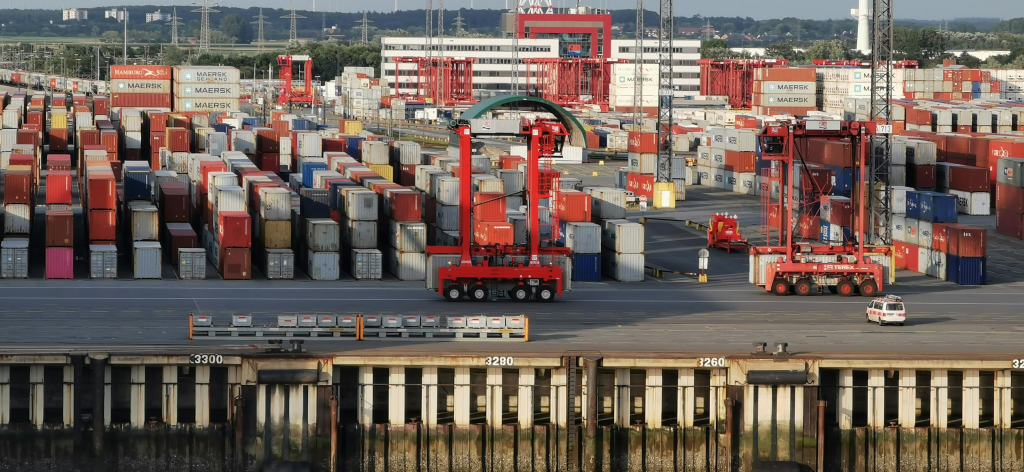Interstate transport plays a vital role in Australia’s economy, ensuring that goods and services are delivered efficiently across the country. With Australia’s vast landscape and varying regional needs, having a reliable interstate transport network is crucial for businesses to maintain supply chains, meet customer demands, and expand their reach.

Whether you’re managing freight, looking for logistics solutions, or exploring the benefits of interstate transport for your business, this article will provide all the information you need to understand why interstate transport is essential.
Click Click Here Now For More Details
What Is Interstate Transport?
Interstate transport refers to the movement of goods between two or more states or territories within Australia. This is typically handled by road, rail, or a combination of both. Australia’s transport network is made up of a variety of transportation modes, with road freight being one of the most common methods.
Interstate transport covers a range of industries, including retail, manufacturing, agriculture, and construction, enabling businesses to ship products across long distances while adhering to regulations and safety standards.
The Importance Of Interstate Transport In Australia
Australia’s vast geography presents unique challenges for businesses trying to move goods across the country. With state borders separating the major cities and regional areas, interstate transport is crucial to overcoming these logistical barriers.
Connectivity Across Regions
Australia’s major cities, including Sydney, Melbourne, Brisbane, Perth, and Adelaide, form the backbone of its economy. However, many businesses are located in rural and regional areas that require efficient transport solutions to reach urban centres.
Interstate transport bridges the gap between these regions, ensuring that products and services can flow freely across state boundaries.
Expanding Market Reach
For businesses that are seeking to expand, interstate transport opens the door to larger markets. By connecting regions, businesses are able to introduce their products to new customers, whether they are in a metropolitan area or a regional location.
This level of accessibility is critical for growth, helping companies to scale their operations and gain access to a wider consumer base.
Efficient Supply Chain Management
Interstate transport is a key element in optimising the supply chain. Through scheduled deliveries and a well-organised network of transport options, businesses can improve their inventory management, reduce delays, and keep their costs down.
A reliable interstate transport system helps reduce the risks of stock shortages or overstocking by ensuring that goods are delivered promptly and efficiently.
Cost Efficiency
By using well-established interstate transport networks, businesses can lower their overall transportation costs. Bulk shipments and long-distance transport often benefit from economies of scale, where costs are spread across a large volume of goods.
Additionally, specialised transport companies can offer flexible and tailored solutions, reducing the need for businesses to invest in their own transport infrastructure.
Different Modes Of Interstate Transport
Australia’s interstate transport network includes a range of different transport modes that businesses can use depending on their needs.
Road Freight
Road freight is by far the most common method of interstate transport in Australia. Trucks and trailers are the backbone of this mode, providing a flexible and direct means of delivering goods across states.
Road transport allows for door-to-door service, making it an ideal choice for businesses looking for efficiency and convenience. From small parcel deliveries to large freight shipments, road freight offers great flexibility.
Rail Freight
Rail is an essential mode of transport for moving large volumes of goods over long distances. Rail freight services are available on key routes across Australia, including between Sydney, Melbourne, and Brisbane.
It’s particularly useful for bulk goods like coal, agricultural products, and manufacturing materials. Rail transport is cost-effective for large shipments, although it requires coordination between different transport systems for last-mile delivery.
Air Freight
For time-sensitive shipments, air freight offers the quickest method of interstate transport. It is primarily used for high-value goods or items that are required urgently, such as medical supplies, electronics, or perishable products.
While air freight is significantly more expensive than road or rail options, it’s indispensable for businesses that need to meet tight deadlines.
Sea Freight
While primarily used for international shipping, sea freight can also play a role in transporting goods between Australia’s coastal cities. This is more common when goods need to be delivered to ports like Melbourne, Sydney, or Fremantle.
Sea freight is used for bulk and containerised shipments and is typically more cost-effective for larger consignments, but it can take longer than air freight or road transport.
The Challenges Of Interstate Transport In Australia
While interstate transport offers many benefits, it also presents a set of challenges that businesses need to navigate.
Geographic Barriers
Australia’s size and vast distances make interstate transport a complex logistical challenge. While major cities are well-connected, moving goods between rural and regional areas can be more time-consuming and expensive.
The varying climate conditions and terrains also impact the efficiency of transport services.
Regulatory Compliance
Australia’s transport regulations vary by state, which can create complexity for businesses operating across multiple regions. From road regulations to safety standards and environmental rules, ensuring compliance with each state’s requirements is a key challenge.
Businesses need to work with transport providers that understand the ins and outs of interstate regulations.
Fuel Prices And Environmental Concerns
Fuel costs have a significant impact on the cost of transport, especially in a country as large as Australia. The volatility of fuel prices can affect transport budgets, and businesses must account for these fluctuations when planning interstate shipments.
Moreover, the environmental impact of long-distance transport is a growing concern, leading to increased pressure for more sustainable transport solutions.
Supply Chain Disruptions
Weather events, road closures, and natural disasters can all disrupt interstate transport. In Australia, extreme weather events like floods, bushfires, and cyclones can cause delays or block key transport routes.
Businesses need to build contingency plans and work closely with their logistics partners to ensure the reliability of their supply chain.
How To Choose The Right Interstate Transport Partner
Selecting the right interstate transport provider is critical to ensuring the efficiency and reliability of your supply chain. Here are some key factors to consider:
Experience And Expertise
Look for transport companies with extensive experience in managing interstate deliveries. They should have in-depth knowledge of the local regulations, transport infrastructure, and industry standards.
A seasoned provider will have a network of reliable partners to ensure smooth deliveries, regardless of your destination.
Fleet And Equipment
Check that the transport company has a modern fleet of vehicles and equipment suited to your business’s needs. Whether you require refrigerated transport for perishable goods or a standard freight truck, the company should be able to accommodate your specific requirements.
Reputation And Reviews
Research the reputation of potential transport providers. Online reviews and customer testimonials can offer insight into the quality of service, timeliness, and customer support. It’s important to partner with a company that values transparency and communication.
Pricing And Flexibility
While price is always an important factor, it should not be the only deciding element. Evaluate the overall value offered by the provider, including the level of service, reliability, and additional features like tracking and customer support. A flexible transport provider will offer solutions that can be tailored to your specific business needs.
Technology And Tracking
Look for companies that offer advanced tracking and monitoring technology. Real-time tracking provides peace of mind and allows you to monitor your shipments as they make their way across the country.
This can be especially valuable when dealing with time-sensitive or high-value products.
Conclusion
Interstate transport is a cornerstone of Australia’s national economy and supply chains. It ensures that goods move efficiently across vast distances, reaching both metropolitan and regional markets.
For businesses, a reliable interstate transport system is vital for expanding market reach, improving supply chain management, and reducing costs.
By understanding the importance of interstate transport, choosing the right partners, and overcoming the challenges that come with long-distance deliveries, businesses can strengthen their operations and stay competitive in the Australian market.
As the demand for goods grows and markets continue to evolve, interstate transport will remain a critical factor in driving Australia’s economic growth and success.
Frequently Ask Question
What Is Interstate Transport?
Interstate transport refers to the movement of goods or cargo between different states in Australia. This service is essential for businesses that need to ship products across state borders. It involves the use of trucks, rail, or sometimes air freight to deliver goods in a timely and safe manner.
Interstate transport can cover short or long distances, depending on the nature of the shipment. Reliable logistics providers ensure smooth and efficient transport from one state to another.
How Do I Book Interstate Transport For My Goods?
Booking interstate transport typically involves contacting a freight company either via their website or customer service. You will need to provide details such as the type of goods, the weight, dimensions, and the pickup and delivery locations.
Once the company receives the information, they can offer you a quote and arrange the best transport solution based on your needs. It’s essential to ask about delivery timeframes and any special handling requirements.
How Long Does It Take To Transport Goods Interstate In Australia?
The time required to transport goods interstate in Australia depends on factors like the distance between the origin and destination, the mode of transport, and weather conditions. For example, deliveries between major cities like Sydney and Melbourne might take 1-3 days, while longer distances could take up to 7 days.
Freight companies usually offer tracking services so you can monitor the progress of your shipment and adjust your plans accordingly.
